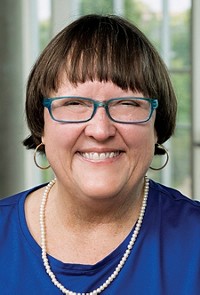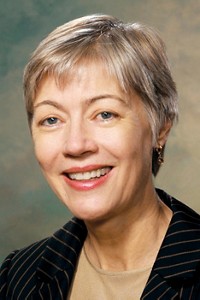Advertisement
Grab your lab coat. Let's get started
Welcome!
Welcome!
Create an account below to get 6 C&EN articles per month, receive newsletters and more - all free.
It seems this is your first time logging in online. Please enter the following information to continue.
As an ACS member you automatically get access to this site. All we need is few more details to create your reading experience.
Not you? Sign in with a different account.
Not you? Sign in with a different account.
ERROR 1
ERROR 1
ERROR 2
ERROR 2
ERROR 2
ERROR 2
ERROR 2
Password and Confirm password must match.
If you have an ACS member number, please enter it here so we can link this account to your membership. (optional)
ERROR 2
ACS values your privacy. By submitting your information, you are gaining access to C&EN and subscribing to our weekly newsletter. We use the information you provide to make your reading experience better, and we will never sell your data to third party members.
Careers
African Americans And Science
by Sibrina N. Collins
October 26, 2009
| A version of this story appeared in
Volume 87, Issue 43
This guest editorial is by
IN JUNE 1994, I was a first-year graduate student in the chemistry department at Ohio State University. I had just completed my undergraduate degree from Wayne State University, and I was eager to pursue graduate work.
I was one of only seven African American students in the program with an enrollment of approximately 200 graduate students. The chair of the department, Matthew Platz, invited us to lunch one afternoon at the faculty club. He basically said, "Tell us what we need to do to keep you here." Professor Platz wanted all of us to succeed.
Since that day, I have been on a journey to understand why so few African Americans pursue careers in the chemical sciences. Moreover, I have developed a true passion to learn about African Americans' contributions to the chemical sciences.
Recently, I had a conversation with an African American student over lunch at the College of Wooster. She is enrolled in an African Studies course, and one of her first assignments was to name two African American scientists. She told me she could only think of one, George Washington Carver, the most recognized and widely celebrated African American scientist.
Born on a farm in Diamond Grove, Mo., in 1865, Carver completed his B.S. and M.S. degrees in 1894 and 1896 from Iowa Agricultural College (now Iowa State University). After completing his graduate degree, he received a job offer from Booker T. Washington to join the faculty at Tuskegee Normal Institute (now Tuskegee University). Carver's research efforts using peanuts and sweet potatoes led to hundreds of applications and three patents. Carver's impact is important, but he is only one example of many African American scientists.
The first African American Ph.D. chemist was St. Elmo Brady. A native of Louisville, Brady completed his undergraduate degree in 1908 from Fisk University, a historically black college or university (HBCU) in Nashville. He joined the faculty at Tuskegee where he was mentored by both Carver and Washington. In 1912, he began graduate studies at the University of Illinois, Urbana-Champaign. He earned an M.S. degree in 1914 and a Ph.D. in 1916. Brady spent his entire career in academia teaching at several HBCUs. He published three abstracts in Science with his Ph.D. adviser, Clarence G. Derick, and coauthored an article with Samuel P. Massie Jr., the first African American faculty member at the U.S. Naval Academy.
It would be three decades after Brady's accomplishments before the first African American woman would earn a doctorate in chemistry. A native of Corona, N.Y., Marie Maynard Daly received a B.S. degree in 1942 from Queens College and an M.S. degree in 1943 from New York University. In 1947, she earned a Ph.D. in chemistry from Columbia University. Daly worked in the laboratory of Quentin B. Deming at Columbia on the important relationship between high cholesterol and heart attacks.
Many other African Americans have also contributed to the chemical sciences, including Percy L. Julian, Henry C. McBay, and Henry A. Hill, the first African American president of ACS. Today, we have many other examples, including Joseph S. Francisco (2009 ACS president-elect), William Jackson, James Mack, Paula Hammond, Malika Jeffries-El, Gloria Thomas, and John Harkless.
Two important factors are still needed to broaden participation by African Americans in the chemical sciences: effective mentoring and funding. Organizations such as the National Organization for the Professional Advancement of Black Chemists & Chemical Engineers have played a significant and important role in helping African Americans reach their full potential. NOBCChE has certainly played an important role in my career. And effective mentoring is the critical factor for increasing the numbers in the pipeline.
Why should we be concerned about minority contributions to science? By 2050, more than 50% of the U.S. population will be minorities. The face of U.S. science, technology, engineering, and mathematics must reflect these demographics. A far more important reason, however, is the need for diverse perspectives to solve many of our current challenges.
Sibrina N. Collins
Views expressed on this page are those of the author and not necessarily those of ACS.




Join the conversation
Contact the reporter
Submit a Letter to the Editor for publication
Engage with us on Twitter